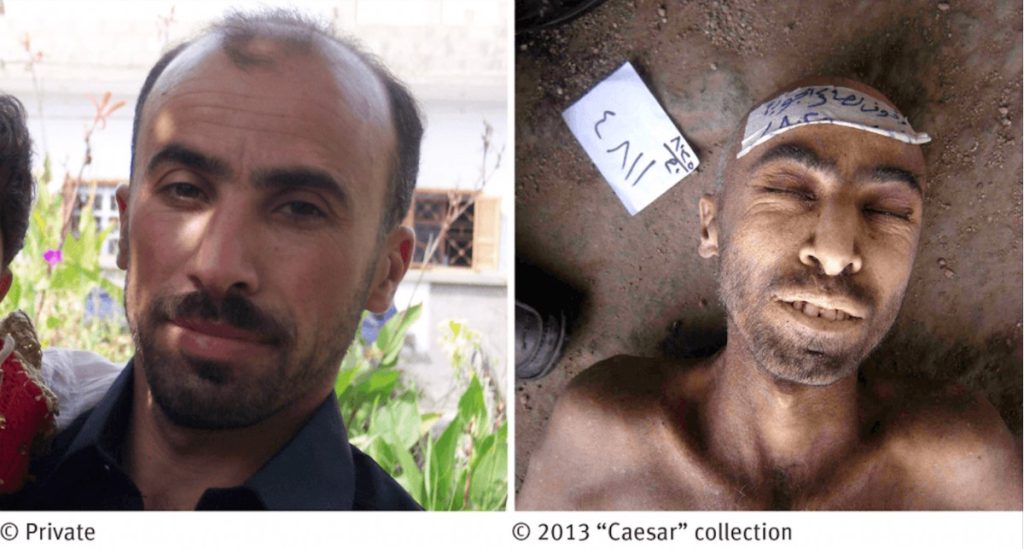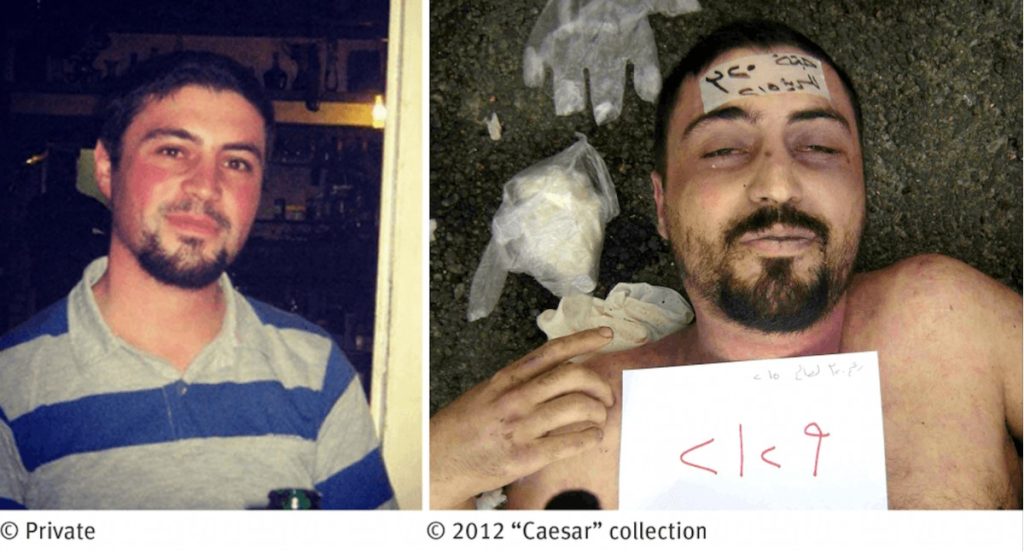Oqba al-Mashaan was 32 years old when he was arrested. He lived in the town of Mou Hassan, in Deir al-Zor governorate, where he worked as a government employee at the local agricultural department office. He was married with two daughters: Alia, who is now four, and Rehab, who is now three.
Oqba came from a large family, with five brothers and one sister. The family had already faced tragedy when government forces shot and killed his younger brother Zuheir during an anti-government protest in 2011.
Pro-government armed men arrested Oqba on March 28, 2012, as he was on his way home and turned him over to the local Air Force Intelligence branch. Several onlookers saw the arrest and informed the family what had happened.
When his oldest brother, Qotaiba, went looking for Oqba, he was also arrested, he told Human Rights Watch. Qotaiba spent 30 days detained in the Branch 291, run by Military Intelligence in Damascus.
In October 2012, two of Qotaiba’s brothers were killed. One was killed by pro-government sniper and one in an indiscriminate attack, his parents told Human Rights Watch. The youngest of the family, Bashar, was killed in 2014 during a battle with the Islamic State, while he was trying to assist the wounded, they said. Qotaiba had been released, but Oqba was still missing. His father, Ali al-Mashaan, told Human Rights Watch:
At first, we knew where he was. We couldn’t see him, but we received information from defectors, and from former detainees. We heard from a group that he was in Jawiya (Air Force Intelligence). We heard that he was detained [at the Air Force Branch] in Mezze, then sent to Sednaya prison. We heard that Oqba was well.
The family paid middlemen connected to the government to learn more about Oqba’s situation. They heard that Oqba had been charged for demonstrating, trading weapons, and encouraging protests. His father also made an official inquiry through the Ministry of Justice, but received no reply for several months. “Finally, the answer came from the Ministry of Justice: ‘We have no information about him,’” Ali told Human Rights Watch.
After their youngest son’s death, Oqba’s parents fled to Turkey with their remaining two children, and some of their grandchildren.
In March 2014, two years after Oqba’s arrest, the Caesar photographs were released. A family friend thought he recognized Oqba among them, and sent the photograph to Yasmin, Oqba’s sister. She received the photo at 1 a.m. and identified her brother from the photograph. She told her one surviving brother, Qotaiba, but they did not know how to tell their parents that they had lost yet another of their children.
His mother told Human Rights Watch:
I saw them, and asked them, ‘Tell me, what is going on?’ They told me, ‘Abu Aliya [Oqba] died.’ I responded I want to go to Syria to receive condolences there. I went there, and saw his wife and children. His daughter, she is three and a half years old, she said, ‘Thank you god, my father can rest now, and has been released from the suffering and injustice.’
Three photographs of Oqba appear among the Caesar photographs. A card on his chest notes that he had indeed been in the custody of the Air Force Intelligence branch. The folder they appear in is marked March 2013, a year from the date of his arrest. Though his body is severely emaciated, his family said they were sure they recognized him.
Human Rights Watch shared these photographs with Physicians for Human Rights. Forensic pathologists found evidence of “moderate to severe starvation,” as well as “chronic venous insufficiency of lower extremities,” a symptom they described as “consistent with prolonged standing.”





